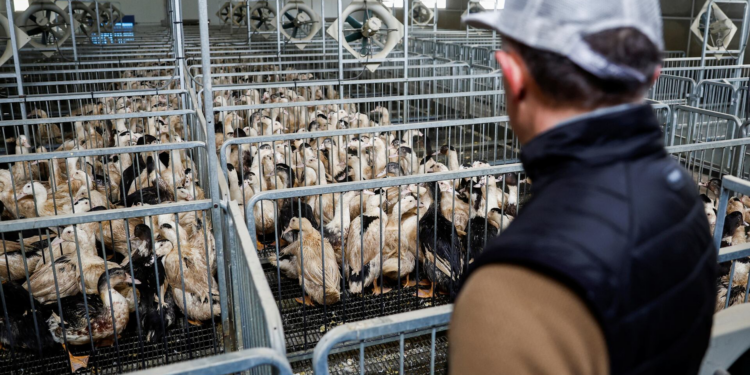The CDC is closely monitoring a recent outbreak of bird flu in America, and they are taking the situation “very seriously.” However, due to the agency's credibility issues stemming from their handling of the COVID-19 pandemic, many people are skeptical. The concern arose when a Texas farm worker became the second American ever to be infected with the H5N1 strain after contracting it from an infected cow, marking the first time bird flu has been found in cattle.
In an interview with NPR, CDC Director Mandy Cohen assured that the risk to humans from this particular strain of bird flu is low, as it seems to have been transmitted through contact with sick animals. She emphasized that there has been no evidence of human-to-human transmission in the United States. However, Cohen also acknowledged that viruses can change and mutate, so it is crucial to stay ahead of the situation.
According to the U.S. Department of Agriculture (USDA), the Highly Pathogenic Avian Influenza (HPAI) has been detected in livestock in six states: Texas, New Mexico, Kansas, Idaho, Michigan, and Ohio. The fact that the virus is crossing species barriers and infecting cattle is concerning, as it provides more opportunities for mutation and potential spread.
Some individuals, like Representative Thomas Massie, question the CDC's credibility and worry that the outbreak will be used as a pretext to advance certain agendas against raw milk, independent farmers, and backyard chickens. Massie pointed out a previous report from the Daily Mail, stating that the U.S. government funded experiments on dangerous bird flu viruses in collaboration with Chinese scientists. This collaboration involved infecting ducks and geese with different strains of viruses to study their potential to infect mammals.
Despite concerns and distrust, Cohen assures that the United States has been preparing for avian flu outbreaks for over 20 years. Tests are available to detect the virus, and there are treatments like Tamiflu and vaccine candidates ready to be deployed if necessary.
In terms of food safety, a former FDA expert advises people to cook their eggs thoroughly to kill any potential virus fragments. The risk of transmission through properly cooked poultry products, including eggs, is very low. However, the risk increases with improperly cooked eggs or poultry meat. Using pasteurized eggs or ensuring that eggs are fully cooked can provide an additional layer of safety.
In conclusion, the CDC's response to the bird flu outbreak is being met with skepticism due to their credibility issues during the COVID-19 pandemic. Nevertheless, the agency is closely monitoring the situation and has measures in place to detect, prevent, and treat avian flu. It is crucial for individuals to practice proper food safety measures, such as cooking eggs thoroughly, to minimize the risk of exposure.







